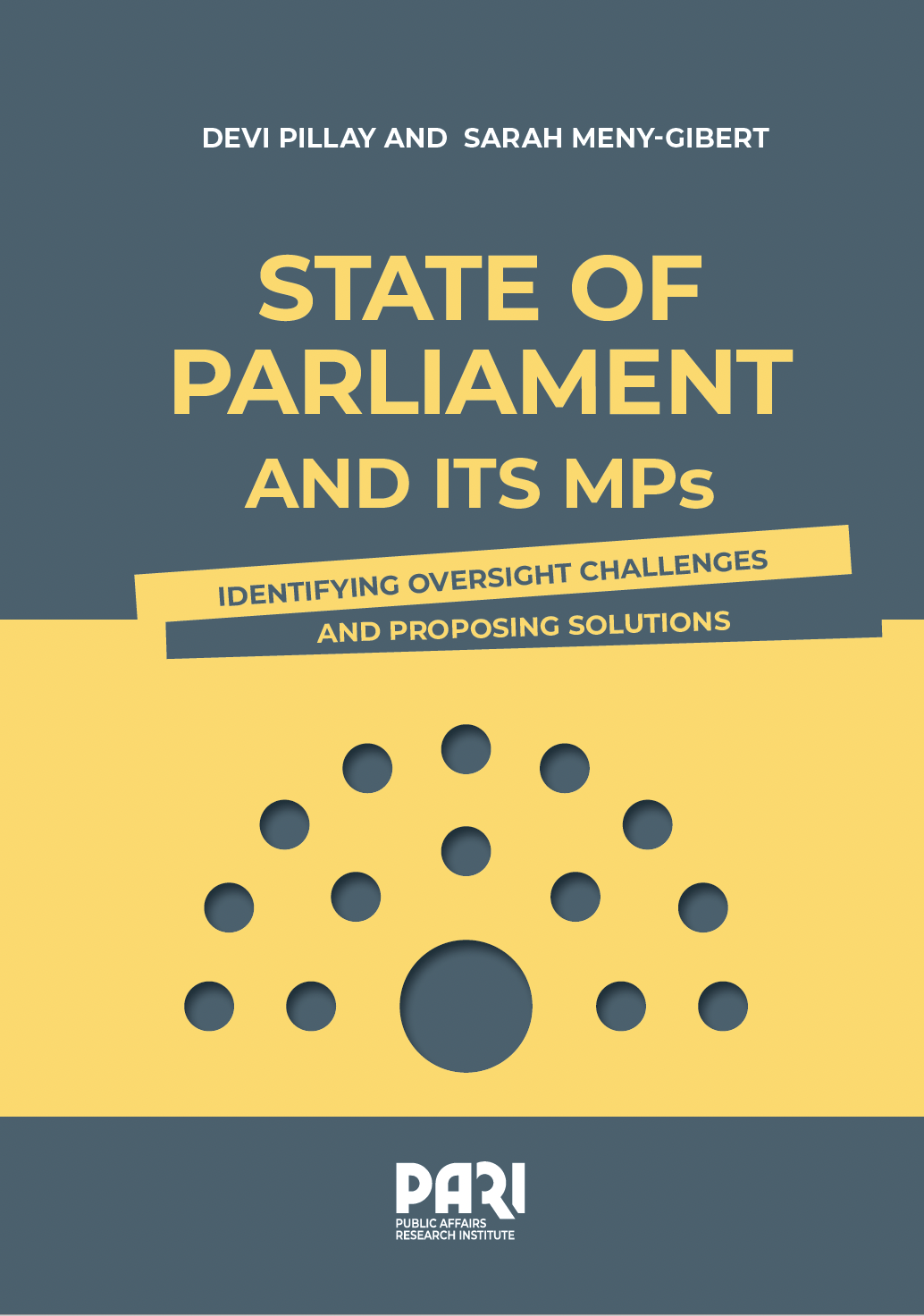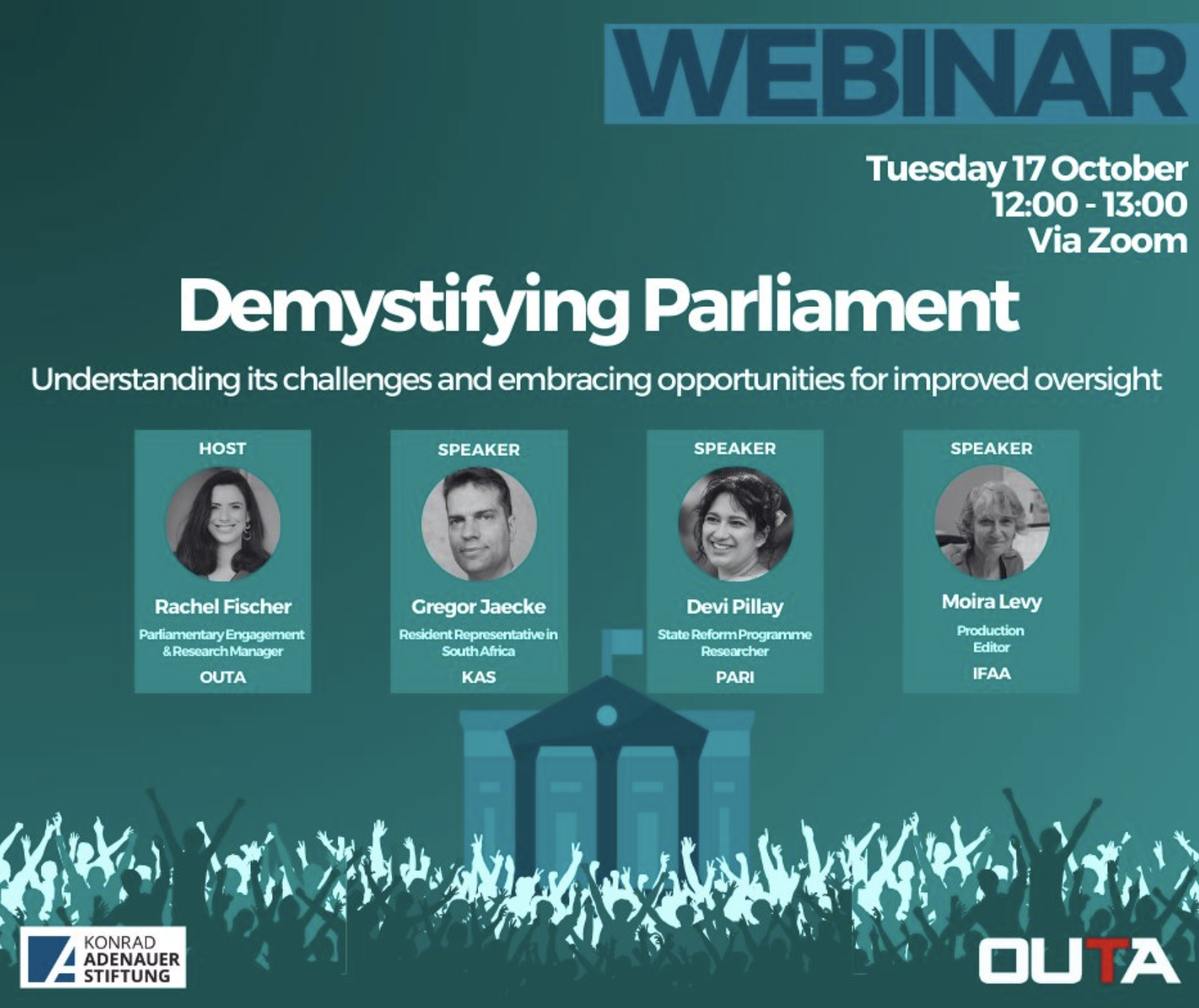EXECUTIVE SUMMARY
Parliament is required by the constitution to “scrutinise and oversee executive action”: the key function of the system of separation of powers built into our democracy. The importance of parliamentary oversight cannot be overstated. The Constitutional Court’s ‘secret ballot’ judgment states: “[…] accountability is necessitated by the reality that constitutional office bearers occupy their positions of authority on behalf of and for the common good of the people. It is the people who put them there, directly or indirectly, and they, therefore have to account for the way they serve them. … Members of Parliament have to ensure that the will or interests of the people find expression through what the state and its organs do.”
This study seeks to explore the nature of the oversight function in parliament in South Africa today: whether it is working, and how well, what shapes oversight in Parliament, and what can be done to enhance the role of Parliament in holding the government of the day to account. It is intended to support interest and debate about the state of our parliament amongst active citizens and civil society organisations, and to support the work of members of parliament (MPs) and others committed to strengthening this vital institution of democracy.
This report draws on a range of sources, that includes secondary literature, South African jurisprudence on the concept and exercise of oversight, statements by MPs and others on parliamentary oversight submitted to the Zondo Commission and the Commission’s reports, parliament’s own assessments of its work, and interviews conducted by the PARI research team with MPs, parliamentary staff, and others.
Parliament is mandated by the Constitution to exercise oversight over the executive and hold it accountable. It is empowered to do this by a number of constitutional provisions and supporting legislation. This is a vital part of our democratic system, and is inherent in the concept of the separation of powers, which provides for checks and balances on the exercise of executive power, making the executive accountable to an elected legislature.
This research was made possible through funding from the Konrad Adenauer Stiftung (KAS) and commissioned by the Organisation Undoing Tax Abuse (OUTA).
The report will be launched on 17 October at 2pm in a webinar titled Demystifying Parliament, featuring co-author and PARI Researcher Devi Pillay.



